Placemaking Postcards is a blog series from the Bass Center for Transformative Placemaking at Brookings where policymakers and practitioners guest-author promising placemaking efforts from across the U.S. and abroad that foster connected, vibrant, and inclusive communities. In line with the principle tenets of placemaking, the goal of the series is to recognize the community as the expert, highlight voices from the field, and to create a community of learning and practice around transformative placemaking.
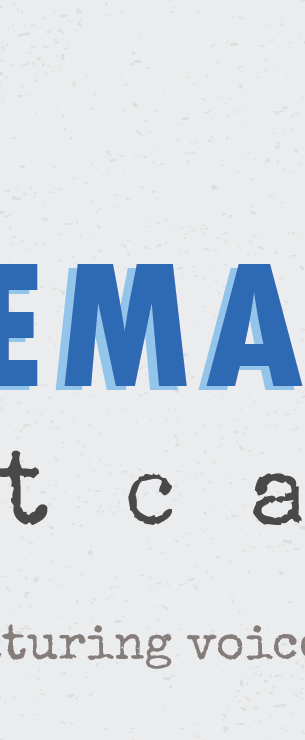 The economic fallout from the COVID-19 pandemic has exposed both the fragility of our nation’s civic infrastructure, as well how much our communities rely on it. But even as states and localities face crushing budget shortfalls, the public amenities they offer—parks, recreation centers, libraries, etc.—are stepping up to provide communities with essential resources to weather the pandemic and build resilience in the months to come.
The economic fallout from the COVID-19 pandemic has exposed both the fragility of our nation’s civic infrastructure, as well how much our communities rely on it. But even as states and localities face crushing budget shortfalls, the public amenities they offer—parks, recreation centers, libraries, etc.—are stepping up to provide communities with essential resources to weather the pandemic and build resilience in the months to come.
Public libraries, in particular, are frontline forces in economic recovery. After the Great Recession, Americans increasingly turned to public libraries to access resources, skills training, and job search assistance. Today, libraries have become “second responders” to COVID-19, providing 24-hour free Wi-Fi hotspots, temporary shelter to people without homes, and 3D printers to make masks for health workers.
These responses have brought new attention to the economic and city-building functions of public libraries. But many libraries have been advancing these goals for decades, and are able to make an impact now by applying lessons learned from pre-pandemic efforts. One example is the New Haven Free Public Library in Connecticut, which in 2016 embarked on a strategic mission to tackle the city’s intractable history of economic exclusion by creating a free, accessible, and inclusive entrepreneurial hub for residents.
Libraries as tools for inclusive innovation
New Haven is marked by vast and persistent economic inequities. One in four residents lives in poverty—a statistic that has remained relatively unchanged for the past 10 years, and is all the more striking given the city’s proximity to renowned institutions, including Yale University and a plethora of innovation-focused corporations, community organizations, and nonprofits.
In 2016, the city librarian, Martha Brogan, saw an opportunity to tackle these disparities using the public library. “We saw the library as a critical platform for building greater access, opportunities, and connections to help drive startup potential for those left out of New Haven’s innovation culture,” she told me. Brogan collaborated with my design firm specializing in civic and cultural institutions, Margaret Sullivan Studio, as well as New Haven-based organizations such as the Elm City Innovation Collaborative to identify three research-based assumptions about what the library needed to do to accomplish its mission:
- A continual pipeline of new, local talent and small businesses is essential for job creation and a dynamic economy. Therefore, the library should strive to expand the number of entrepreneurs and innovators within the city.
- A diverse mix of entrepreneurs is key to an equitable and productive small business ecosystem. Therefore, the library should cultivate entrepreneurship among residents of color, women, and other underrepresented groups.
- Finally, a successful small business ecosystem relies on strong social networks among business owners. Therefore, the library must build connections across the community to strengthen citywide collaboration.
These assumptions formed the basis of our idea to create an inclusive entrepreneurial hub within the library. It took a coalition of forces to bring the idea to fruition: In 2017, the New Haven Free Public Library received $150,000 in funding from the city as part of a state award to foster “Innovation Places.” Recognizing the library as a free, public, and trusted institution (and therefore an ideal setting to increase access to New Haven’s innovation economy), the city contributed an additional $970,000 in capital funding to transform the library into an anchor institution that could be the “front door” for aspiring entrepreneurs into the city’s innovation ecosystem. Brogan proposed a site within the Ives Memorial Library, which sits prominently on the New Haven Green, adjacent to Yale and amidst the city’s walkable downtown.
After choosing the site, our goal was to engage the residents that the hub was meant to benefit, enlist them as co-creators of the vision, and create a place that was welcoming to those who are often left out of the innovation economy, as well as those already well connected and immersed in it.
Inclusive innovation requires an inclusive process
In line with the principles of transformative placemaking, our team wanted the entrepreneurial hub to emerge from a rigorous community engagement process. My team at Margaret Sullivan Studio led a collaborative visioning and programming study with the city, library, and community. For four months, we conducted intensive engagement sessions with 200 community members, including local makers, students, civic activists, city administrators, nonprofit leaders, aspiring entrepreneurs, the Yale School of Management, and library staff. This process revealed three primary insights:
- Community members wanted access to New Haven’s innovation culture, and to be connected to the many startups, makerspaces, and mentorship opportunities in the city—but they didn’t know where to start.
- Entrepreneurs, makers, and other stakeholders already involved in New Haven’s innovation sector wanted to break down siloes and enhance collaboration with each other, but also had no mechanism with which to do so.
- Librarians would need to step up to tackle both of these challenges by becoming active agents of community development—switching their model from a reactive provider to an active connector for individuals, organizations, and New Haven’s culture of innovation.
In July 2018, we opened the entrepreneurial hub, named Ives Squared. It’s a 5,820-square-foot hub consisting of a series of inviting spaces, including a community commons, concierge-like information area, collaborative workplace, makerspace with 3D printers and other prototyping equipment, and café that doubles as a social meet-up place. Every inch is designed to be part of an integrated whole to create conditions for community gathering, technological exploration, networking, and interactive learning.
As part of this integrated concept, we developed programming and curricula to activate Ives Squared and give residents access to the local innovation economy. For instance, the Entrepreneur-In-Residence and Creative-In-Residence programs bring in talent from the community to offer workshops and one-on-one office hours for residents, which has helped some launch and adapt their own businesses.
Also essential to Ives Squared is its focus on nurturing relationships and providing the missing connective tissue between New Haven’s wealth of resources, experts, institutions, and businesses and its residents. Librarians are trained to be connectors for the community; over Ives Squared’s first 11 months, they referred 134 patrons to community organizations (e.g., social services, workforce training, co-working sites). Meanwhile, entrepreneurs come to Ives Squared to test out product ideas, such as a farmer who used the 3D printer to invent products and equipment for his sustainable farm.
Adapting amid COVID-19
The value of the New Haven Free Public Library as a community connector and economic inclusivity engine has become even more critical during the pandemic. When the physical library closed on March 16 due to COVID-19, it pivoted to the virtual realm and began providing free Wi-Fi hotspots and new programs, including Zoom meetings and office hours to help residents cope with the pandemic’s fallout, manage stress for small businesses, and address issues related to racial injustice. The community that took root in rooms of Ives Squared now thrives virtually. This fall, the library was able to reopen with a phased plan and limited capacity.
As states, cities, and communities continue to grapple with financial instability, public libraries can play a critical role as drivers of economic reinvention and regeneration—not only amid COVID-19, but over the long term. Few, if any, other institutions have the capacity, regional reach, resources, community connections, trust, and unwavering focus on the welfare of the individual and collective good. The New Haven Free Public Library and Ives Squared are examples of the innovations we need to face the systemic challenges of our future.
The Brookings Institution is committed to quality, independence, and impact.
We are supported by a diverse array of funders. In line with our values and policies, each Brookings publication represents the sole views of its author(s).
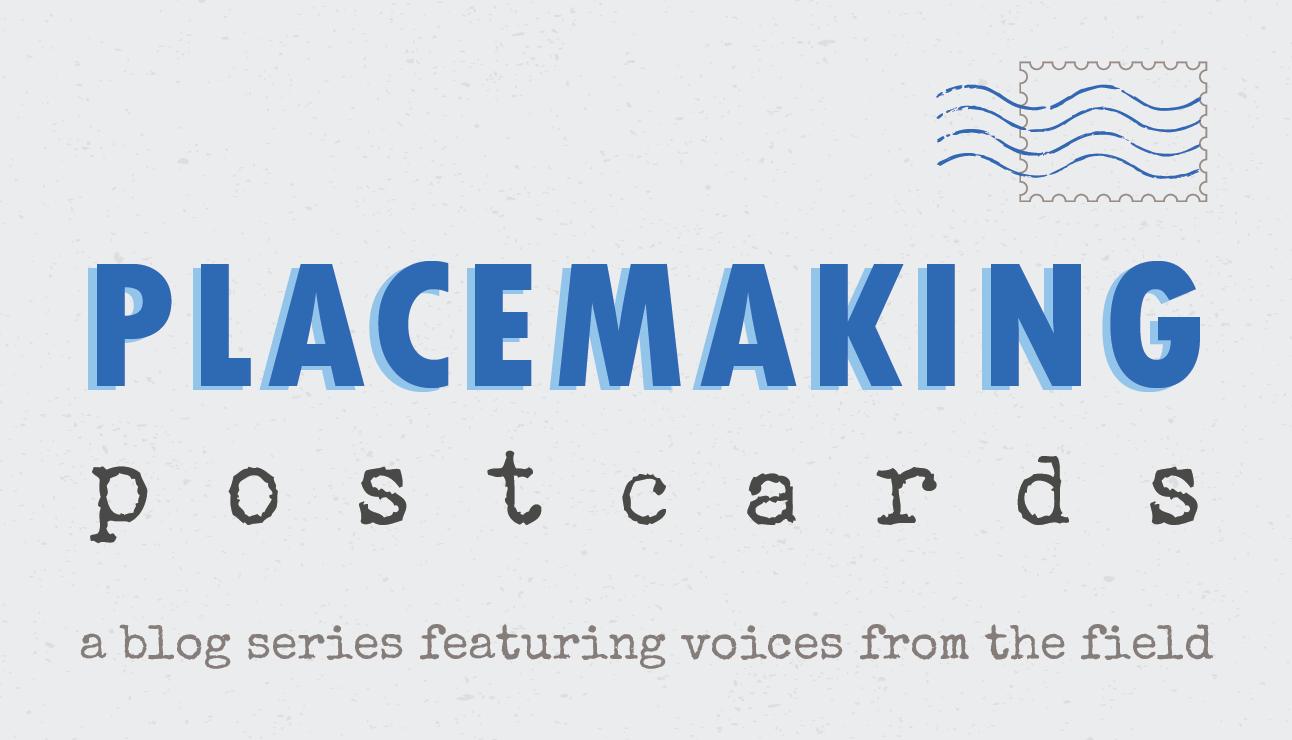
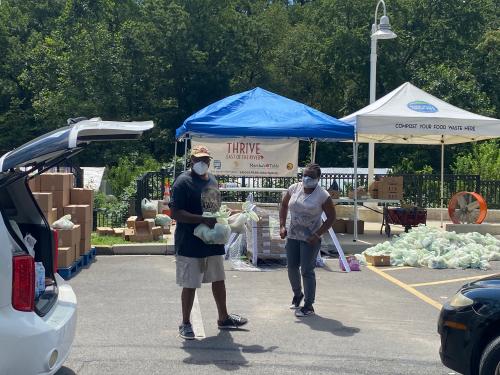

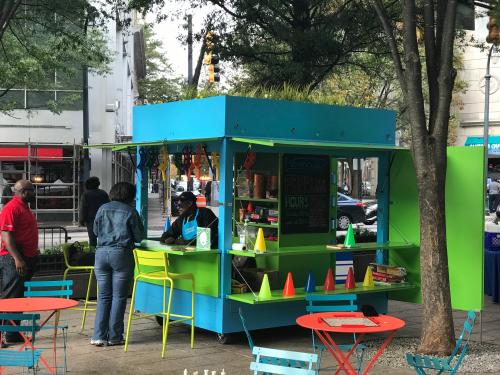


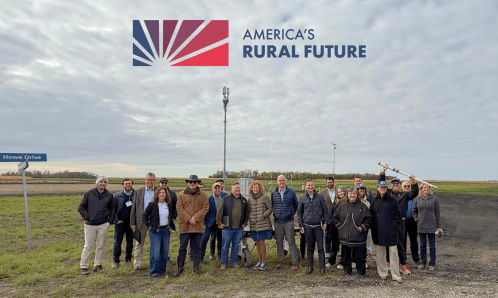
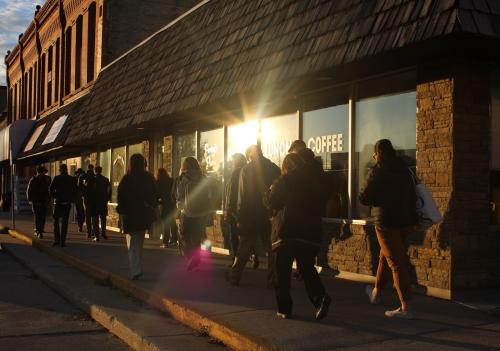
Commentary
How a New Haven library is connecting residents to the city’s innovation economy
October 26, 2020